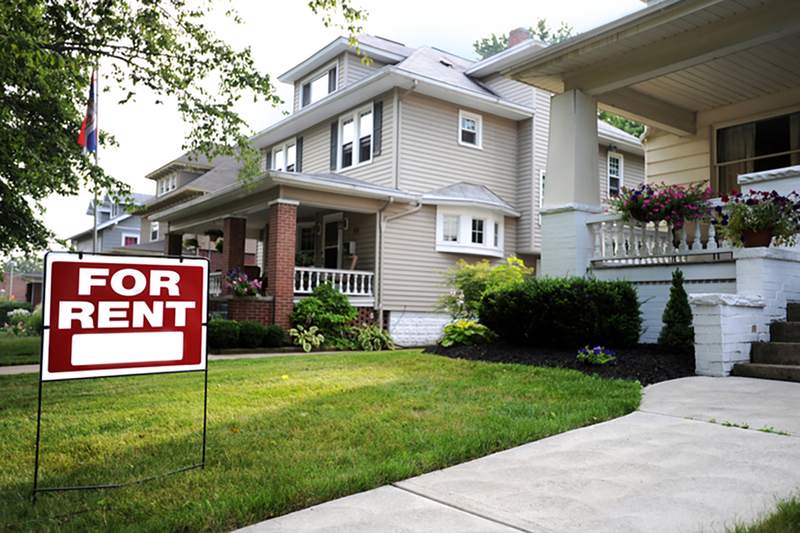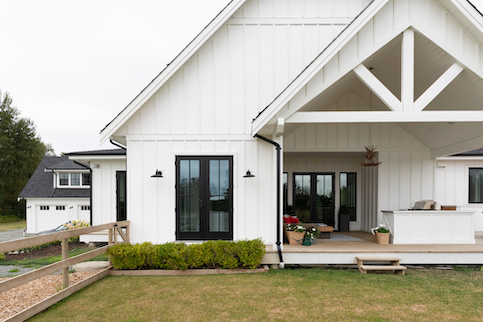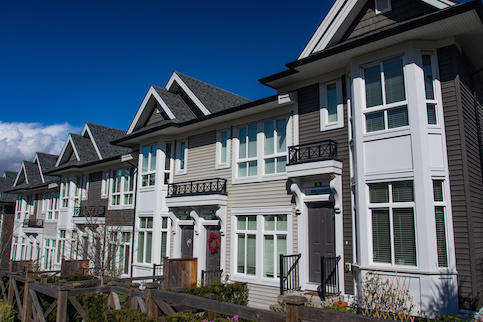There are no sure things when investing your dollars. Sinking your money in the stock market could leave you with big gains or even bigger losses. Purchasing cryptocurrency, investing in a mutual fund or depositing your money in an IRA can help you grow wealth. But you might also lose money.
Real estate is no different. Residential and commercial real estate has long been a popular choice for investors. This makes sense: The value of single-family homes, multifamily properties and commercial real estate tends to rise over time. And depending on how you use the real estate you buy – you can rent out a single-family home or rent units in a multifamily property – you might earn steady income while holding onto this investment.
But as with all investment types, profit is not guaranteed when investing in real estate. Depending on how much you spend, where you buy and what property you purchase, your chances of earning a good return on your real estate investment are high. But they are not guaranteed.
If you are willing to take on at least some risk, though, investing in real estate could pay off.
Why Invest In Real Estate?
There are several reasons investing in real estate can be a smart financial move, everything from boosting your monthly cash flow to creating a passive income stream.
It Can Increase Your Cash Flow
Depending on the real estate you buy, you could increase your monthly cash flow with this investment. To do this, you’ll need to purchase income-producing real estate, such as an apartment building, a two-flat in which you rent out one or both units, a commercial property or some other form of real estate for which you charge rent. Every month, you can collect rent checks, money that could increase the amount of cash flowing through your business or household.
It Can Create Passive Income
Passive income is money that you earn without having to work directly for it each month. For instance, if you buy an apartment building and hire a property manager to run it, you’ll collect monthly rental income without putting in the work of directly managing the property. If you invest in a strip mall and again hire professionals to manage and market this property, you’ll collect rent from its tenants without working daily to bring in that money. Of course, generating passive income does require work upfront: You must find the right real estate, buy it for a fair price and perhaps renovate it so that it attracts the greatest number of renters or tenants.
It Can Diversify Your Investment Portfolio
It’s important to invest your dollars in several types of investment vehicles. If one of your investments falls in value, your others can provide a financial buffer. Investing in real estate is one way to diversity your investment portfolio. Maybe most of your investments are in the stock market. You can hedge against the ups and downs of the market by adding apartment buildings or single-family homes to your investment portfolio. By building a real estate portfolio that includes a mix of property types – single-family homes, multifamily buildings, two-flats, commercial properties – you can protect yourself against stock market crashes, economic slowdowns or other financial challenges.
Find A Mortgage Today and Lock In Your Rate!
Get matched with a lender that will work for your financial situation.
See What You Qualify For
Buy A Home
Discover mortgage options that fit your unique financial needs.

Refinance
Refinance your mortgage to have more money for what matters.
Tap Into Equity
Use your home’s equity and unlock cash to achieve your goals.
Real Estate Investing: 4 Common Types
You can choose from several different types of investment properties. Here are four common ones to consider:
1. Buying A Primary Residence
The most common form of real estate investment? Buying your own home in which to live.
The goal when buying a new house should be two-fold: You want to find a home that is a good fit for you and your family. But you also want to purchase a home that will increase in value while you own it.
You can’t guarantee that a home’s value will rise after you buy it. But you can take steps to improve the odds, such as a buying in a neighborhood that is in demand, purchasing a home that is near good public schools or buying in a community with easy access to public transportation.
You can also increase your home’s resale value by making smart improvements, such as updating its kitchen and bathrooms, adding an extra bathroom or turning one of its bedrooms into a master bedroom suite.
Your goal is to steadily build your home equity. Equity is the difference between what you owe on your mortgage and what your home is currently worth. If your home is worth $350,000 and you owe $150,000 on your mortgage, you have $200,000 in equity.
You build equity in two ways. First, you’ll build equity by paying down your mortgage, with every mortgage payment reducing the principal balance of your loan. Your equity will also rise if your home increases in value.
You can borrow against this equity in the form of home equity loans or home equity lines of credit. The more equity you have when you sell, the greater the profit you’ll earn from your primary residence.
2. Buying A Rental Property
Buying rental properties is another good way to earn money as a real estate investor. Not only might the rental property you buy increase in value – meaning you could sell it for a profit if you choose – it will also earn you monthly income from renters.
This doesn’t mean that making money off a rental property is easy. You’ll have to find the right property in the right neighborhood, one that is in demand from renters so that your rental income will remain steady each month. Many of the owners of rental properties hire property management firms, another expense, to handle the work of maintaining a property, vetting renters and collecting rental income.
Qualifying for a mortgage for a rental property can be more challenging, too, with many lenders requiring a down payment of at least 15% of the property’s purchase price, though this will vary depending on your credit and lender.
3. Flipping A Property
House flipping is another way to make money off real estate. But be aware that this takes plenty of work.
When you flip a house, you purchase a property for a lower price, renovate it and then sell it for a higher price. The key is to buy a home for a low enough price so that you earn enough after renovating it to make a solid profit.
The challenge is that flipping a house is expensive. Not only do you have to buy the property, but you must also pay for the renovations that will make it attractive to buyers.
You can help fund these renovations by taking out a home equity loan or home equity line of credit (HELOC), loan types that let you borrow up to a certain percentage of a home’s equity. You’ll typically need to use the equity in your primary home because the new property you’ve bought to renovate and flip won’t have any or enough equity for a loan.
Make sure to pay back your home equity loans on time. If you don’t, your lender could foreclose on your home.
4. Purchasing Shares In REITs
Purchasing a property isn’t the only way to invest in real instate. You can also invest in REITs, real estate investment trusts.
REITs are companies or businesses that own, operate or provide funding for real estate. They also create cash flow for the investors that have invested money in them.
You can purchase a share in individual REITs or invest in bundled REITs through real estate ETFs and mutual funds. This is a possible investment option if you don’t want to purchase an apartment or commercial property on your own.
You can also invest in real estate without buying physical property on your own through syndication. In syndication, a sponsor fronts the larger part of the investment to build and manage a property. The sponsor then recruits investors to fund the remaining portion of the project. Each of these investors earns a percentage of the property’s returns, typically 5% to 10%. Again, this is a good option if you want to invest in real estate but don’t have enough funds to purchase a property on your own.
Consult a financial advisor before you make any real estate investment moves. Advisors can help determine if an investment opportunity is a good fit.
Tips On How To Make A Good Real Estate Investment
As with any investment, you are not guaranteed to make money by investing in real estate. There are steps you can take, though, to increase the odds that your investment will pay off.
Pay Attention To The Housing Market
The real estate market constantly changes, with the value of different property types rising or falling depending on what is happening in the economy. Studying your local housing market, and the prices that single-family homes, multifamily properties and commercial buildings earn when they sell, will help you correctly time a real estate investment. You want to study, too, the demand for real estate types in the areas in which you want to invest. This research will increase the odds that you’ll buy a property that will increase in value as you own it.
Work With Real Estate Professionals
It’s important to work with a real estate agent and other real estate professionals – such as inspectors and appraisers – when considering a real estate investment. A REALTORⓇ or real estate agent, for instance, can help you avoid overpaying for a real estate investment and can share key information about average sales prices in an area. A real estate agent can also help you negotiate a lower purchase price for a residential or commercial property.
Start With Small Investments
If you’re new to investing, consider starting with smaller projects that are more likely to provide a decent return on your investments. A smaller property – such as a single-family home or two-flat – is a manageable starting point for potential landlords or those who want to manage property. With a limited investment of dollars, you can focus on building cash flow and minimizing risk.
Then, you could use your early opportunities to build credit and create the funds for larger investments. You can then try to scale up over time. This might require looking at multiple properties or those in high-demand locations.
Of course, speaking to a financial advisor is always best.
Understand Local Housing Regulations
An important part of doing your research is learning the local housing codes and regulations in the neighborhoods you’re investing in.
For example, if you don’t have a permit to build certain structures, like a garage, you or your contractor could be subject to fines of up $1,000 each day depending on your state. You may also run into a similar issue with fencing that exceeds a certain height.
These regulations aren’t unusual in states across the country. Make sure to understand the regulations in your community before you sink your dollars into an investment property.
Is Investing In Real Estate Worth It?
Whether real estate investments are “worth it” or not depends on the investor. Your risk tolerance, overall financial plan and needs will determine whether real estate investing is a viable option.
Real estate has been a steady investment over time, one that often comes with less volatility than investing in the stock market and provides higher returns than safer investments like bonds or CDs.
This doesn’t mean that investing in real estate doesn’t come with challenges. Real estate is expensive, and you might have to borrow money to purchase a property. And as with all investments, returns are not guaranteed, no matter how much research you put into a property and its surrounding community.
The Bottom Line: Real Estate Can Be A Good Investment
If you’re willing to do the research and take on some risk, investing in real estate can be a smart decision.
Find A Mortgage Today and Lock In Your Rate!
Get matched with a lender that will work for your financial situation.

Dan Rafter
Dan Rafter has been writing about personal finance for more than 15 years. He's written for publications such as The Washington Post, Chicago Tribune and Wise Bread.












